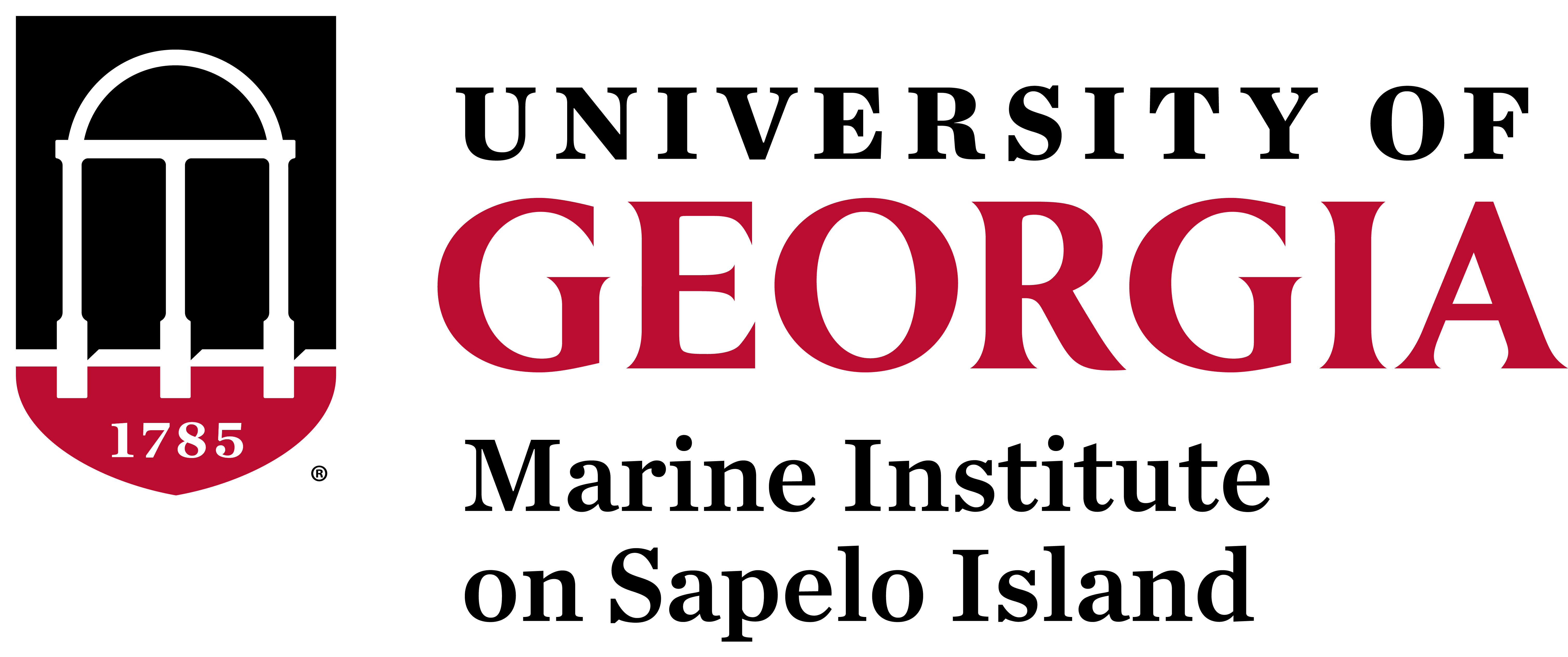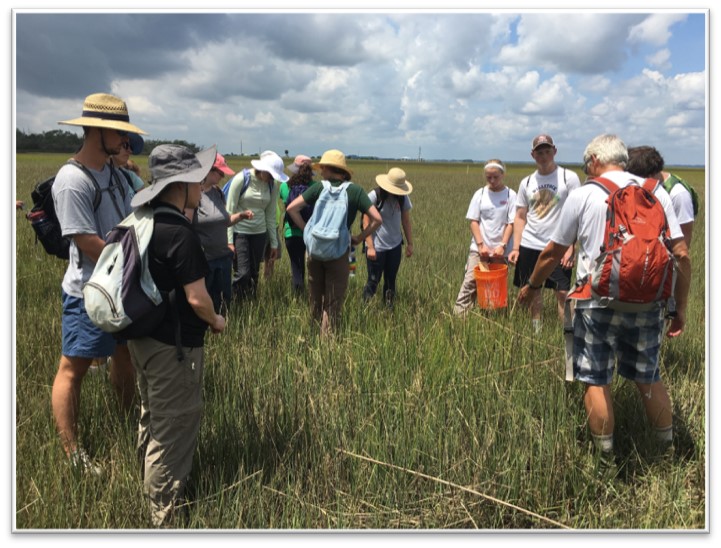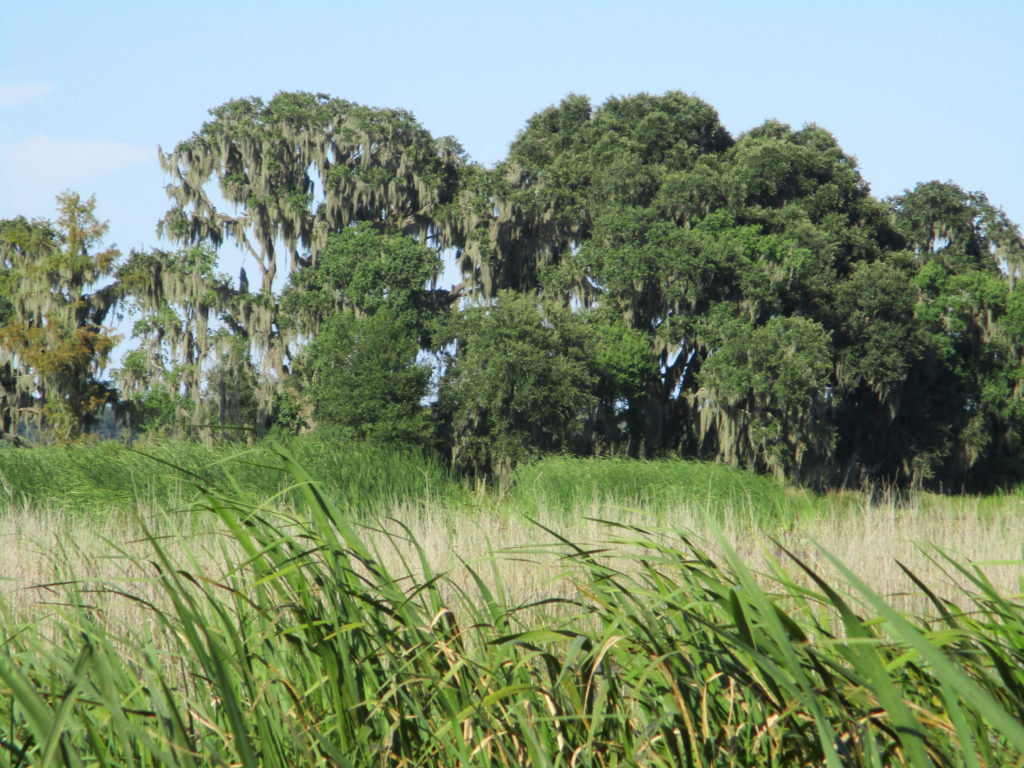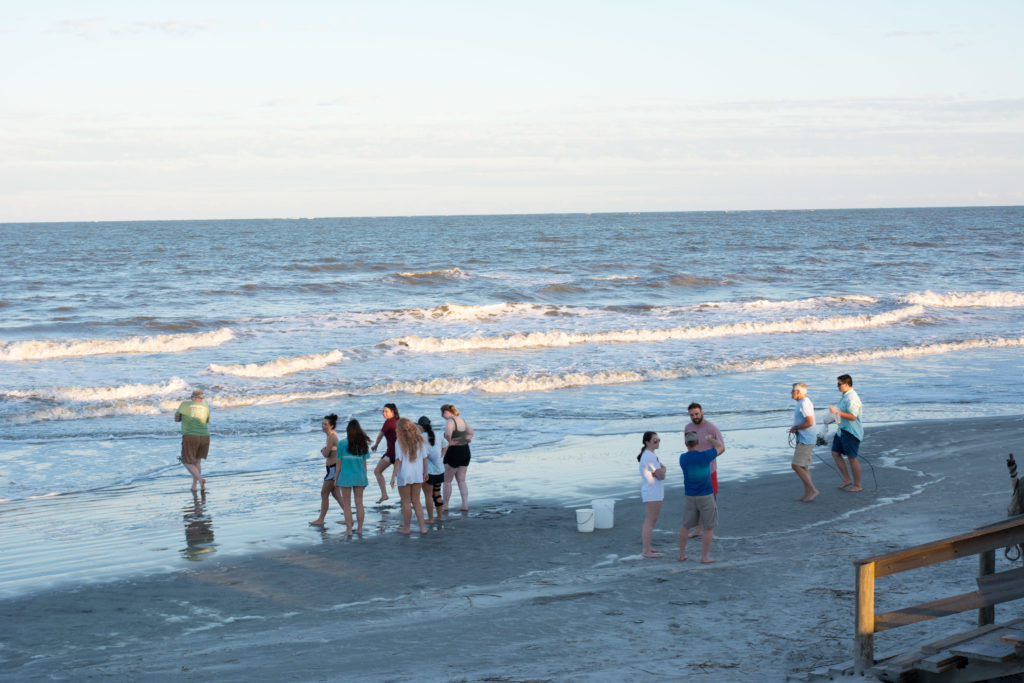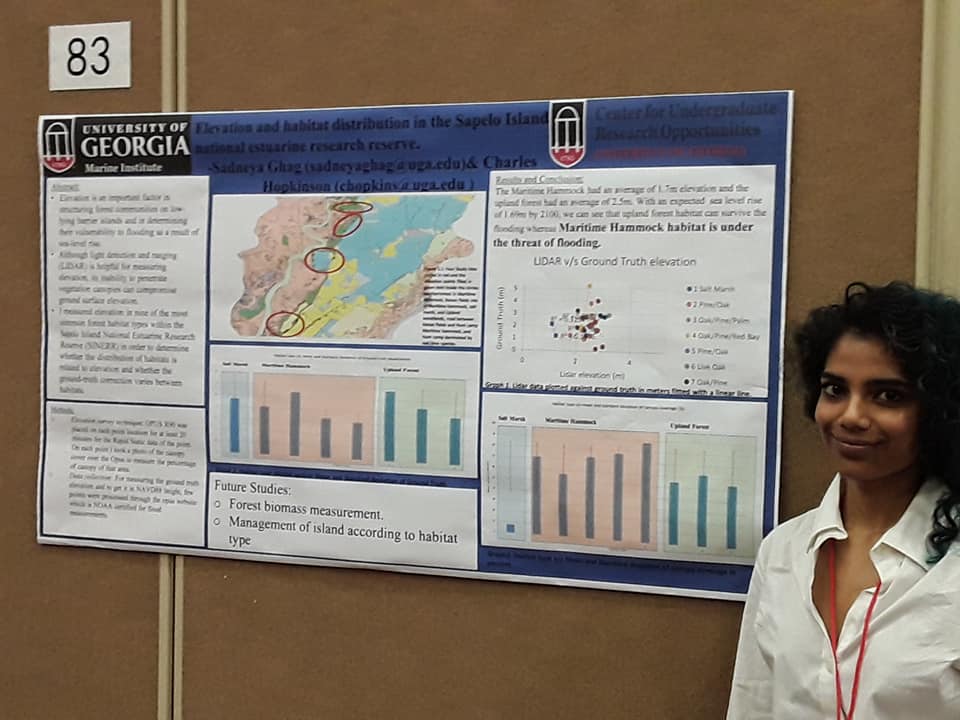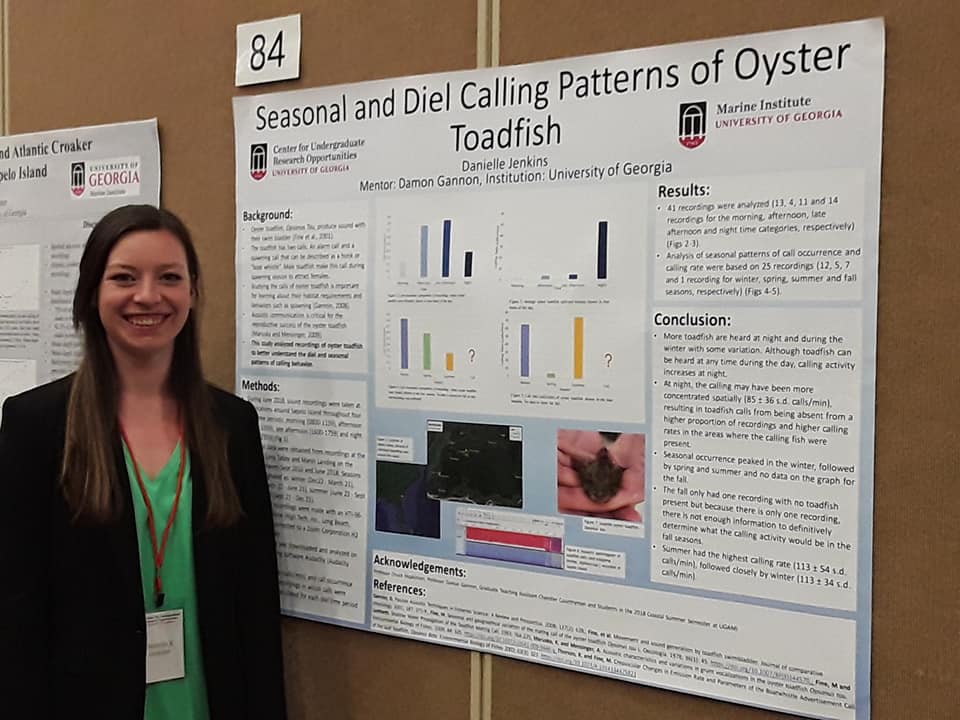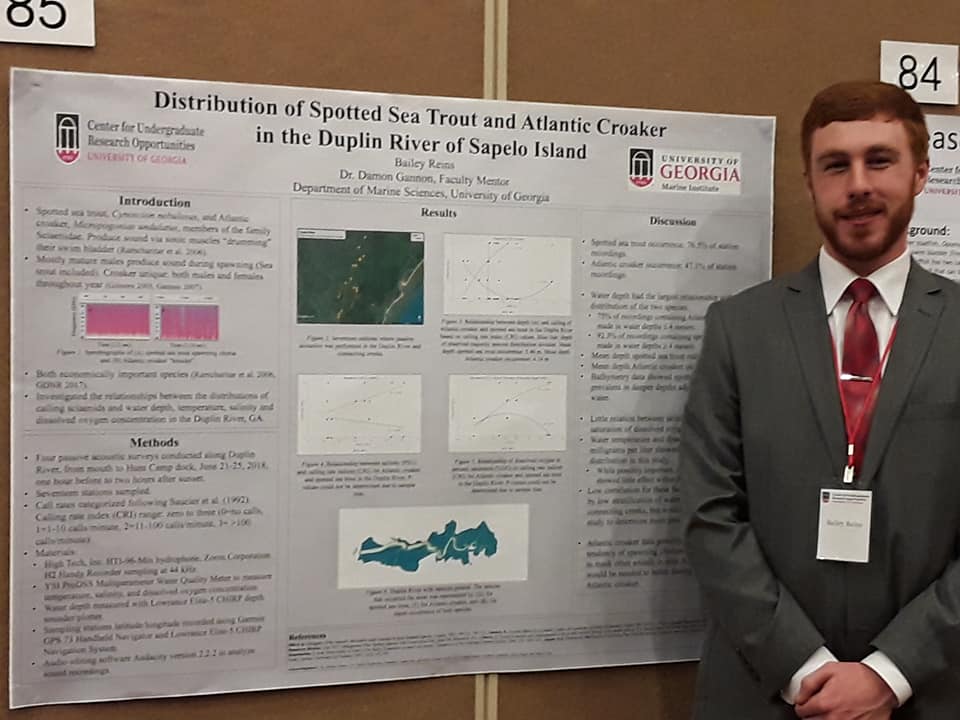Summer 2019 Intern Recap
UGAMI saw several interns over the summer working on various GCE LTER projects. A few of the interns visited Sapelo for a week or two while others lived on the island for the entire summer. Here is what five of the interns had to say about their projects and Sapelo experience!
Bryanna Sanders
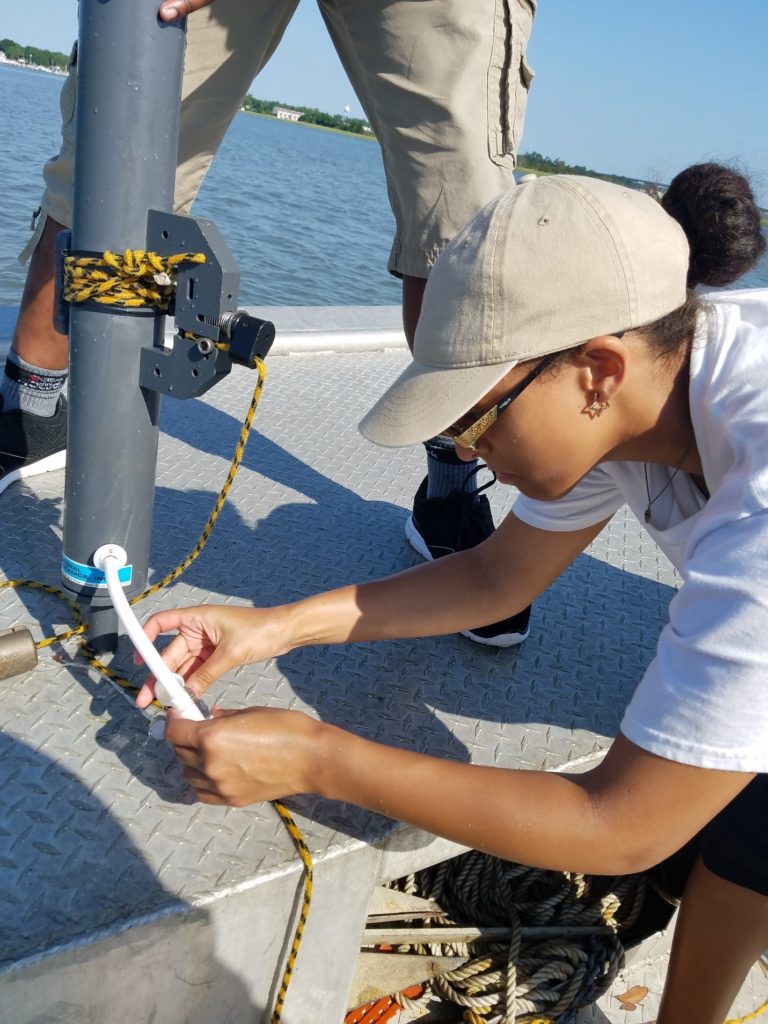
“I am from Pensacola, Florida and I have recently graduated cum laude from Savannah State University with my B.S. in Marine Sciences. This summer I worked with Dr. Christopher Hintz on the Carbonate Chemistry Dynamics of the Sapelo Island Estuary. Over a 9 week period my mentor and I gathered and analyzed water samples from various creeks and rivers near Sapelo Island, GA. These samples were analyzed for pH, alkalinity, nitrate, phosphate, and Dissolved Inorganic Carbon (DIC). This research is important because estuaries remain an important, but largely unstudied source/sink of carbon dioxide.
My future plans include entering the workforce as a laboratory technician to gain experience in my field and later on entering a graduate program where I hope to earn my PhD.
Thank you so much for this opportunity, I have greatly enjoyed my summer and conducting this research has been a monumental help in determining what direction I would like my career in science to go!”
John Kolb
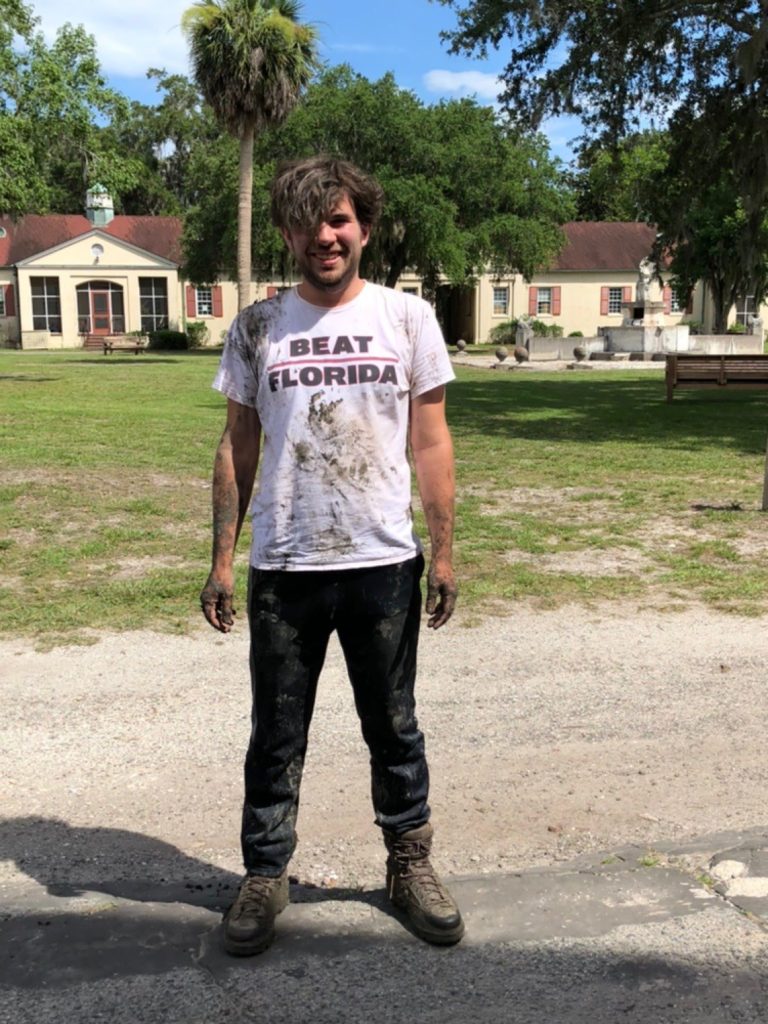
“Hey I’m John, I’m a fourth year at the university of Georgia studying marine science. I worked with Dr. Christof Meile this summer developing a mathematical model for predicting soil temperature in Georgia marshes. We are especially interested in the dynamics of folding from the river in the heat absorbed by the soil on a daily and seasonal scale. This information is important in predicting how temperature rise due to global warming will affect the metabolic processes of the soil in marshes. This is important for the health of Spartina which is the dominant flora in the marshes. In the future I hope to get into graduate school somewhere for marine science to further my goals of becoming a PhD in Oceanography and work on defining the ecosystem dynamics of deep-sea ecosystems.”
Reilly Farrell
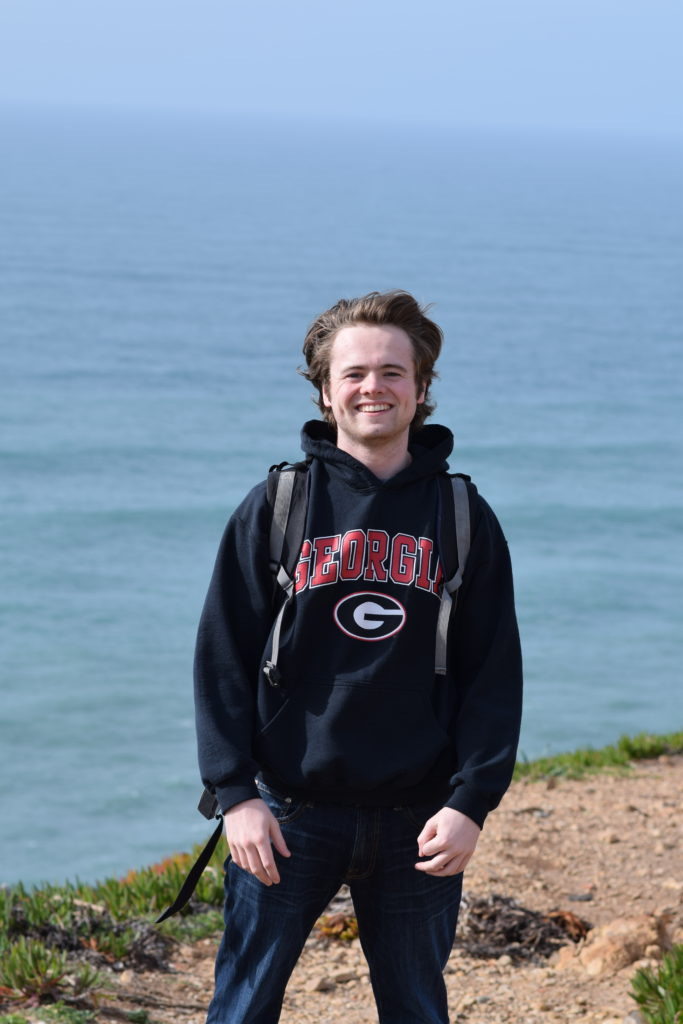
“My name is Reilly Farrell, and I’m a 5th year student at UGA studying Ecology. I decided to apply for an internship at the GCE LTER because I knew I wanted to get a feel for field work in the marine sphere. It luckily led me to Amanda Spivak, who was starting up a few projects determining differences in pore water chemistry across a couple of different sites at Sapelo. As a part of the projects, I actually got the opportunity to build a few of the devices that we put out into the field. It was incredible to be in on data collection from the ground floor and see some of the planning and physical labor that goes into field work.
For my first month as an intern, I was working almost entirely independently which gave me the opportunity to problem solve on my own. Later though, Andrea Reynolds, a PhD student from South Dakota, joined the lab, and we were able to work together to deploy various wells at Sapelo. On my last week as an intern we were actually able to collect data from wells at the headward eroding creek site. These data will hopefully give some insight as to how the marsh will change chemically as sea levels rise and headward eroding creeks gain prominence moving forward. I will be working in Dr. Spivak’s lab over the course of the year with the goal of accruing more data and learning how to extract meaningful information from it. If all goes to plan, I’ll present at CURO in the Spring.”
Jaime Rogers
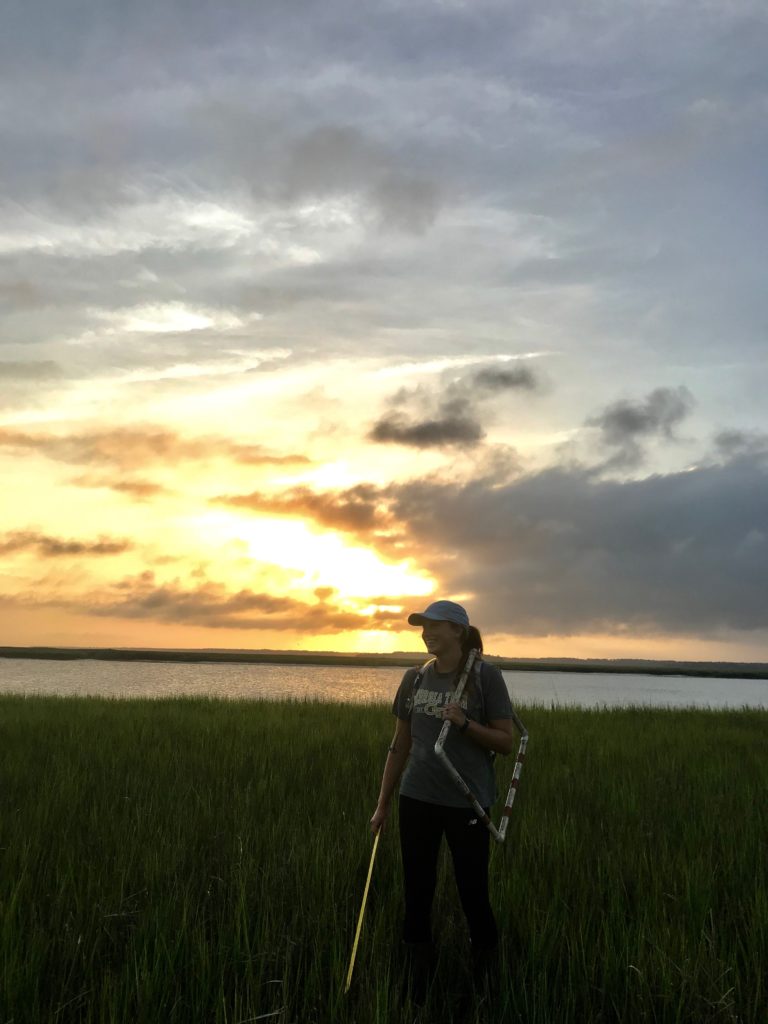
“I grew up in Brunswick, Georgia and then attended high school in Fayetteville, Georgia. I now attend Georgia Tech as a 4th year Biology major.
This summer I worked closely with Sydney Williams who is a PhD student in Dr. Angelini’s lab. We worked on a few different projects on the island. About a third of our time out in the field was devoted to a landscape scale manipulation of mussel mounds to see how removal and addition of mussels affects biomass, invertebrate communities, and nutrient cycling in intertidal creek sheds. We also prepared and executed an experiment involving mesocosm-like instruments with the intentions of controlling inflow and outflow of tidal water over varying mussel mound treatments in order to examine ribbed mussel-facilitated nitrogen processing. We had an awesome trial run of this experiment at the end of the summer and will continue to work on perfecting the methods and deployment throughout this semester. Both of these experiments are incredibly important in understanding ribbed mussels’ role in controlling intertidal water chemistry and nutrient cycling out in the field rather than trying to mimic natural behavior in a lab setting. Finally I was privileged to assist in the preliminary ground truthing for the upcoming Disturbancescape experiment. This project is a collaborative effort within the LTER to determine and study the causes and effects of large and small scale disturbances in the salt marsh. It was really awesome to be on the cusp of a 6 year long experiment and be privy to all the preparation and communication that it takes to make an effort like this happen.
Moving forward, I will be graduating in December so my future plans are a little up in the air! I’m currently continuing research with Dr. Angelini’s University of Florida lab through at least the end of the semester with plans to return to Sapelo a few times to do some field work. After graduation I hope to travel the world for a little while with eventual plans to pursue some research technician positions and eventually a Masters and/or PhD.”
Evan Monnett
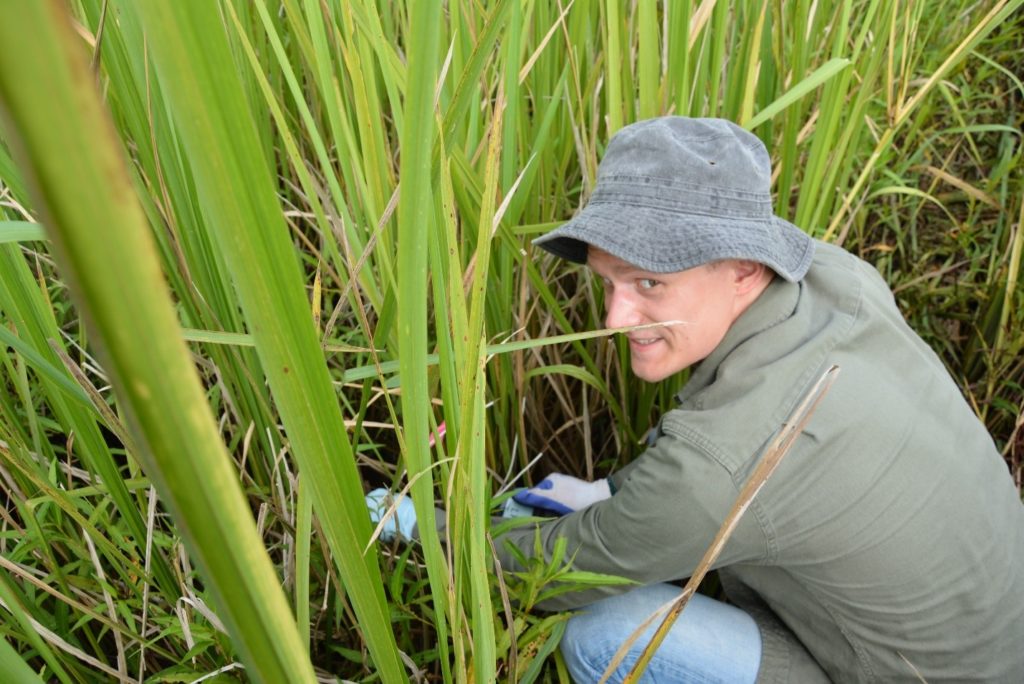
“My name is Evan Monnett and I am a first-year master’s student studying Environmental Science and Public Affairs at Indiana University. This summer I interned with Dr. Chris Craft, studying the effects of predator exclusion on soil decomposition in a Sapelo Island salt marsh. Using the Tea Bag Index technique and taking soil samples to measure soil bulk density and organic C, we worked to understand how the loss of large predators may affect carbon cycling in this important ecosystem. In the future I hope to work closely with legislatures and environmental managers to help preserve our coastal and fringe ecosystems.”
